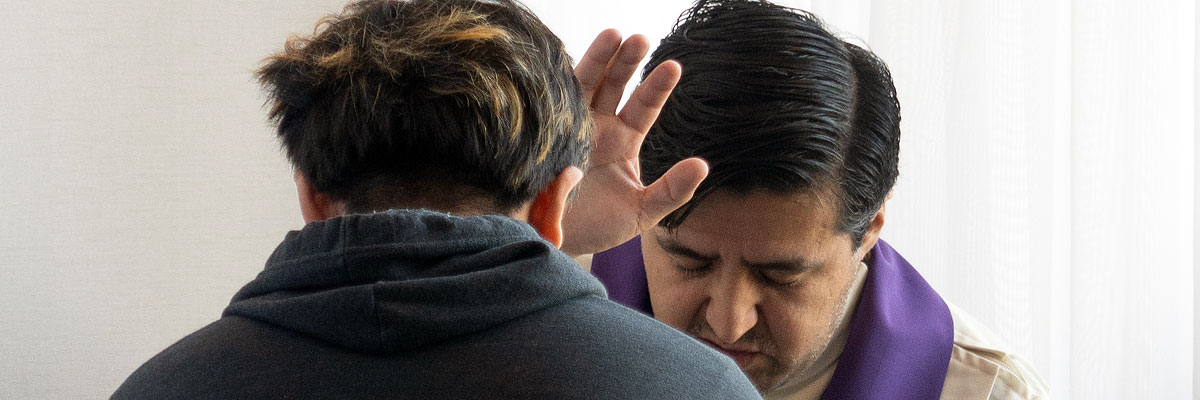Official Website of the
Catholic Diocese of Little Rock
Some sins are worse than others, but all damage our bond with God
Published: February 23, 2008
By Father Erik Pohlmeier
A seemingly short time ago we celebrated the days of Christmas, and then quickly turned our attention from the child in the manger to the man in the desert for Lent.
As Catholics we celebrate a liturgical year that takes us regularly from fasting to feasting, from celebrating God’s promise to acknowledging that we don’t deserve it. The balance can be hard to manage at times, but unfortunately our actions and desire of our hearts can be just as hard to manage.
When the angel was sent to announce the coming birth of the Messiah the point of God’s plan was made clear. To Joseph the angel said, “You shall call his name Jesus, for he will save his people from their sins.” The heartwarming image of the stable in Bethlehem already has in the background a much uglier reality. This child has come to confront sin and it will not be pretty.
Eventually the confrontation will reach its apex on the cross and the apparent defeat will in fact signal the greatest victory, over death itself. That victory will be celebrated with great feasting. But, we are not there yet. At this point the Church calls us to confront sin in all its worst and most personal forms.
At this point we fast so that we may see more clearly just how badly we need a savior. This is the purpose of Lent. The Catechism of the Catholic Church defines sin in this way: “Sin is an offense against reason, truth and right conscience; it is failure in genuine love for God and neighbor caused by a perverse attachment to certain goods (1849).” Sin is a rejection of who we are. We can never find true joy in this life as long as we simply accept sin. We must persevere in the battle to be the people God made us to be.
The season of Lent is supposed to be a thorough examining of personal sin and firm commitment to repentance and to living more fully in God’s grace. It is true that not all sin is equal, but in making that distinction we must realize that even lesser sins damage our relationship with God.
Scripture speaks of different degrees of sin, noting that “some sin is deadly (1 John 5:16-17).” Deadly sin is what we call mortal sin while less serious sin is called venial. Those words are familiar to most Catholics but the actual distinction less so. According to the catechism, mortal sin “destroys charity in the heart” while venial sin “allows charity to subsist, even though it wounds and offends it (1855).”
The biggest problem is our tendency to downplay venial sin. We consider others worse than we are, and so as long as there is not mortal sin, it’s not so bad. But, wounding and offending against charity is not OK as we stand before God.
Mortal sin has specific conditions: must be grave matter (doing something serious), requires full knowledge of that seriousness and complete consent, acting with free will. The damage done by mortal sin is the loss of the state of grace and exclusion from Christ’s kingdom. It breaks covenant with God. Only the initiative of God’s mercy restores the soul.
These days are days of fasting. Sin in any form is never to be taken lightly and the penance of Lent helps us see more clearly. Now is the time to make the changes that reject sin. Feasting will come again, and when it does our hunger for the grace of God will let us share more fully in his riches.
Father Erik Pohlmeier is the theological consultant for Arkansas Catholic and pastor at St. John and St. Mary churches in Hot Springs.




